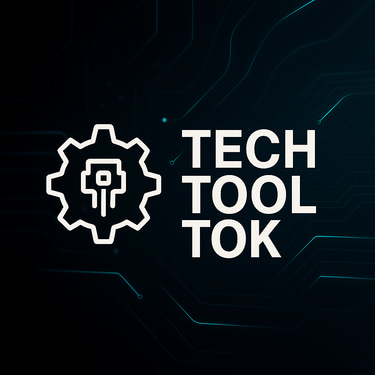A Beginner's Guide to Monetizing AI for Individuals and Small Businesses
8/12/20255 min read



Introduction to Monetizing AI
Artificial Intelligence (AI) has become an integral part of the modern economy, reshaping various industries and creating numerous opportunities for income generation. From automating mundane tasks to providing advanced data analysis, AI technologies are proving invaluable for both individuals and small businesses. These advancements grant stakeholders the ability to enhance productivity, improve customer experiences, and achieve cost-efficiency, making AI a crucial element for success in today’s fast-paced market.
The potential for monetizing AI is immense, ranging from developing AI-driven apps and services to offering consulting and AI integration for companies looking to optimize operations. Individuals with technical expertise can build machine learning models that serve specific needs and generate revenue through service contracts or applications. Small businesses can leverage AI tools to enhance their marketing strategies, optimize supply chains, and personalize customer engagement, thus providing a competitive edge over market rivals. By tapping into these AI opportunities, entrepreneurs can create innovative solutions tailored to meet the demands of their respective sectors.
Understanding the nuances of AI monetization is paramount for navigating this multifaceted landscape. By gaining insights into AI principles and applications, individuals and small business owners can identify viable pathways for revenue generation. This guide aims to provide readers with a comprehensive framework that encompasses foundational knowledge of AI, actionable strategies for implementation, and relevant case studies that exemplify successful monetization efforts.
As we delve deeper into the facets of AI monetization, it is essential to explore the available tools, resources, and best practices that can facilitate successful integration. The knowledge gained will equip individuals and businesses with the skills and strategies necessary to thrive in an increasingly AI-driven world.
Real-World Examples of AI-Powered Income Streams
The integration of artificial intelligence (AI) into everyday business practices has opened new doors for individuals and small businesses striving to monetize their efforts. Various income streams can be generated by leveraging AI technologies, allowing entrepreneurs to optimize their processes and enhance profitability. One notable example is the creation of digital products, such as eBooks and online courses. By utilizing AI tools for market research, entrepreneurs can identify trending topics and develop information-rich content that meets consumer demand. This approach not only reduces the time spent on content creation but also increases the chances of generating sales.
Another promising avenue is offering AI-based services, including data analysis and consulting. Small businesses often face challenges in navigating large data sets; however, employing AI solutions can help clients extract valuable insights. For instance, a startup can provide tailored analytics services using AI algorithms, enhancing decision-making processes for their clients. Such services can be scaled and adapted to different industries, maximizing income potential.
Additionally, the adoption of AI chatbots for customer support stands out as a lucrative option. By automating responses to customer inquiries, businesses can reduce operational costs while improving customer satisfaction. Numerous case studies highlight how startups implementing AI chatbots have significantly boosted engagement levels and, in turn, sales conversions.
Another noteworthy example is automating content creation through innovative AI tools. These advanced technologies allow businesses to produce high-quality content at a fraction of the traditional time and cost. Entrepreneurs can specialize in AI-driven copywriting services, developing content for various sectors, including marketing and social media.
Moreover, launching AI-driven eCommerce stores presents an intriguing opportunity for generating income. By using AI algorithms to analyze consumer behavior, these stores can personalize product recommendations and optimize inventory management, ultimately leading to increased sales. Similarly, developing AI tools for niche markets can also provide substantial revenues while addressing specific business challenges, tailored to the unique needs of targeted clientele.
Getting Started with Monetizing AI
As individuals and small businesses embark on the journey of monetizing artificial intelligence (AI), it is essential to understand the practical steps required to initiate this process. First and foremost, acquiring a foundational understanding of programming languages, such as Python or R, is crucial. These languages are predominant in AI development and machine learning applications, allowing individuals to build and customize AI solutions. Online platforms such as Coursera, Udacity, and edX offer valuable resources and courses necessary for learning, further enhancing one's programming proficiency.
Familiarity with various AI platforms is another vital aspect. Tools such as TensorFlow, PyTorch, and Microsoft Azure provide essential frameworks and APIs for developing AI-specific applications. By leveraging these platforms, individuals can create intelligent solutions tailored to their specific needs or for clients. Subscription costs for some of these tools may vary, and prospective users should assess free versions or trials to minimize initial expenditures.
Additionally, engaging in online communities such as GitHub or Stack Overflow can help budding entrepreneurs gain insights and collaborate with others in the AI field. These forums not only promote networking but also facilitate the exchange of ideas and solutions, effectively speeding up the learning curve. However, individuals should be mindful of potential costs involved, including software subscriptions, cloud computing expenses, and marketing efforts to promote AI solutions. Developing a clear budget will help in managing these initial investments efficiently.
To get started quickly and efficiently, aspiring AI professionals can begin with small projects or freelance opportunities. This approach enables them to test their skills in a real-world setting while generating a potential income stream. It is advisable to focus on a niche area within AI where one's expertise is or can be developed swiftly, thus carving a unique position in the market. Over time, as skills and experience grow, broader AI applications can be explored, leading to significant monetization opportunities.
Ethical Considerations and Long-Term Scalability in AI Monetization
As individuals and small businesses venture into monetizing artificial intelligence, ethical considerations and legal implications become paramount. With the rise of AI applications, issues related to data privacy have gained significant attention. Collecting, analyzing, and utilizing consumer data can lead to potential breaches of privacy, necessitating compliance with regulations such as the General Data Protection Regulation (GDPR) and the California Consumer Privacy Act (CCPA). It is essential for businesses to implement robust data management practices to safeguard consumer information. This will not only enhance trust but also protect against legal repercussions.
Another critical aspect is algorithmic bias, which refers to the unintentional prejudice embedded within AI systems. Bias can arise from skewed training data or flawed algorithm design, leading to unfair outcomes. Addressing this involves continuous monitoring and refining of algorithms to ensure they promote fairness and equity. Businesses must prioritize inclusivity in their AI models to avoid perpetuating existing societal biases, thereby positioning themselves as responsible innovators in the market.
Intellectual property rights (IPR) represent another area of concern while monetizing AI technologies. Businesses must navigate the complexities of securing patents, trademarks, and copyrights for their innovations. This necessitates a comprehensive understanding of national and international laws to protect their intellectual properties and maintain competitive advantage.
To ensure long-term scalability of AI ventures, building a recognizable brand is crucial. A strong brand identity not only enhances visibility but also fosters customer loyalty. Additionally, networking with industry peers can provide valuable insights and opportunities for collaboration, further driving growth. Ongoing learning is vital to stay abreast of emerging technologies and market trends. By embracing a culture of adaptability, businesses can effectively scale their AI-driven projects while maintaining compliance with ethical standards.

